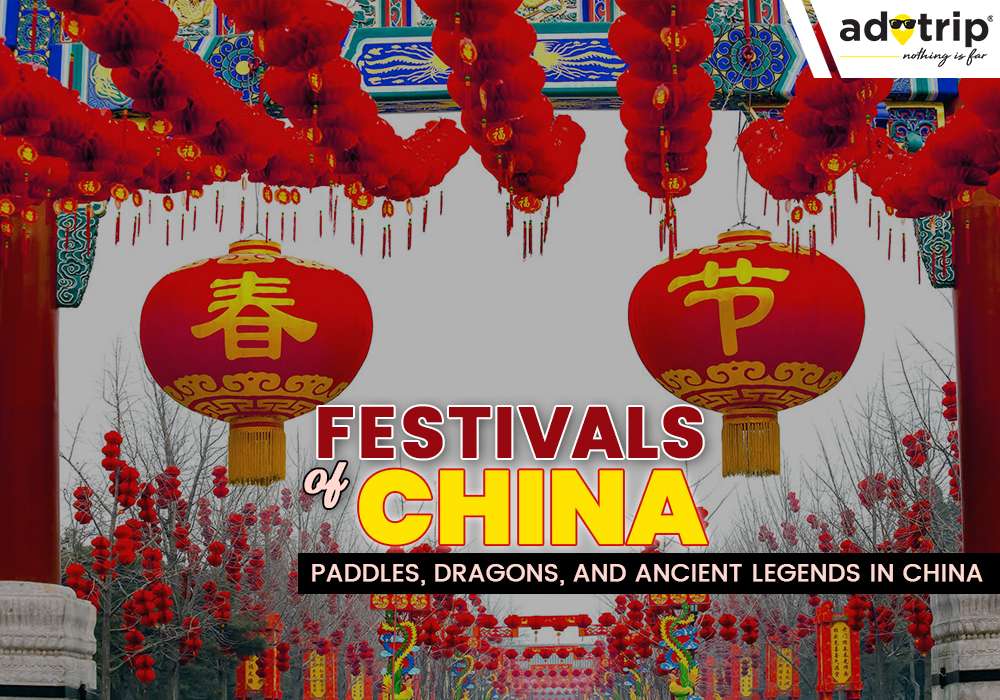
Last Updated At: 28-Mar-2025
10 Famous Festivals Of China You Must Experience In 2025
Festivals hold a special place in the heart of Chinese culture, serving as vibrant reflections of the country's rich heritage, traditions, and diverse regional customs. From the iconic Chinese New Year festivals to the enchanting Lantern Festival, the festivals of China are a kaleidoscope of colours, flavours, and celebrations.
Ranging from dragon boat festival to mid-autumn festival celebrations, each carries its unique significance, be it honouring ancestors, welcoming the change of seasons, expressing love and romance, or simply rejoicing in the blessings of life. With ancient rituals, captivating performances, tantalising cuisine, and an atmosphere filled with warmth and excitement, the festivals of China provide an immersive cultural experience that leaves a lasting impression on all who partake in them.
List Of 10 Chinese Famous Festivals
China boasts a rich tapestry of vibrant festivals, blending ancient traditions with modern celebrations. From the colourful Lantern Festival to the exhilarating Dragon Boat Festival, these cultural spectacles captivate with stunning displays, delectable cuisine, and age-old rituals, embodying China's diverse heritage.
- Chinese New Year | Ringing in the Lunar New Year with Joy and Tradition
- Lantern Festival | A Mesmerizing Celebration of Lights and Wishes
- Dragon Boat Festival | Paddling to the Beat of Ancient Legends
- Mid-Autumn Festival | Moonlit Reunions and Delicious Mooncakes
- Ghost Festival | Honouring Ancestors and Connecting with the Spirit World
- Chongyang Festival | Ascending to New Heights on Double Ninth Day
- Laba Festival | Nourishing the Body and Soul with Festive Feasts
- Spring Lantern Festival | Embracing Spring's Arrival with Radiant Lanterns
- Water Splashing Festival | Playful Delights in a Joyful Water Carnival
- International Snow and Ice Festival | A Winter Wonderland of Spectacular Ice Sculptures
1. Chinese New Year | Ringing in the Lunar New Year with Joy and Tradition
Chinese New Year, also known as Lunar New Year or Spring Festival, is one of the most important and widely celebrated festivals in China and among Chinese communities worldwide. It marks the beginning of the traditional Chinese lunar calendar and is a time for family reunions, feasts, and various cultural activities.
- Date: Usually falls between January 21 and February 20. (As per Gregorian calendar)
- Major Attractions: Reunion Dinner, Red Packets, Fireworks and Firecrackers, Lion and Dragon Dances.
- Famous Places for Celebration: Beijing.
2. Lantern Festival | A Mesmerizing Celebration of Lights and Wishes
The Lantern Festival, or Yuanxiao Festival, is a captivating and joyous event celebrated on the 15th day of the first month in the lunar calendar, marking the end of the Chinese New Year festivities. It is a time when people come together to admire colourful lanterns, solve riddles, and enjoy various cultural activities.
- Date: 15th day of the first lunar month. (Usually between late January and early March)
- Major Attractions: Lantern Displays, Lantern Riddles, Lion and Dragon Dances, Tangyuan.
- Famous Places for Celebration: Zigong.
3. Dragon Boat Festival | Paddling to the Beat of Ancient Legends
The Dragon Boat Festival, also known as Duanwu Festival, is a traditional Chinese holiday that commemorates the life and death of the famous poet and statesman Qu Yuan. It is celebrated enthusiastically and is characterised by dragon boat races, delicious sticky rice dumplings, and various customs and traditions.
- Date: 5th day of the 5th month of the lunar calendar. (Usually in late May or early June)
- Major Attractions: Dragon Boat Races, Zongzi, Hanging Medicinal Herbs and Wearing Colourful Threads.
- Famous Places for Celebration: Zigui County, Yueyang, Guilin and Jiujiang.
Read More : Culture Of China
4. Mid-Autumn Festival | Moonlit Reunions and Delicious Mooncakes
The Mid-Autumn Festival, also known as the Moon Festival, is a traditional Chinese holiday that celebrates the harvest and the reunion of family and friends. Various customs and activities mark the festival, including the admiration of the moon, lantern displays, mooncakes, and family gatherings.
- Date: 15th day of the 8th lunar month (Usually falls in September or October).
- Major Attractions: Lantern Displays, Mooncakes, Dragon and Lion Dances.
- Famous Places for Celebration: Hangzhou, Suzhou, and Guangzhou.
5. Ghost Festival | Honouring Ancestors and Connecting with the Spirit World
The Ghost Festival, also known as the Hungry Ghost Festival, is a traditional Chinese festival observed to honour and pay respects to deceased ancestors and wandering spirits. It is a time when people perform rituals and offer food and other offerings to appease and comfort these restless spirits.
- Date: 15th day of the seventh month of the lunar calendar. (Usually falls in August or September).
- Major Attractions: Traditional Performances, Ghost Lanterns, Offering Rituals, and Floating Water Lanterns.
- Famous Places for Celebration: Quanzhou and Hong Kong.
6. Chongyang Festival | Ascending to New Heights on Double Ninth Day
The Chongyang Festival is also known as the Double Ninth Festival. The festival is associated with ascending yang energy and is a time to pay respects to ancestors, enjoy outdoor activities, and promote good health and longevity.
- Date: 9th day of the ninth lunar month (Usually falls in October).
- Major Attractions: Climbing Mountains, Enjoying Chrysanthemums, Drinking Chongyang Wine, and Eating Chongyang Cake.
- Famous Places for Celebration: Ji County, Lushan Mountain, Yellow Mountain, and Beijing.
Read More : Best Beaches In China
7. Laba Festival | Nourishing the Body and Soul with Festive Feasts
The Laba Festival is a traditional Chinese festival; it is a significant day in Buddhist culture as it commemorates the enlightenment of Sakyamuni Buddha. The festival is celebrated with various customs and activities, including the consumption of Laba porridge, temple visits, and charitable acts.
- Date: 8th day of the twelfth lunar month (Usually falls in January or February).
- Major Attractions: Laba Porridge, Temple Visits, Charity and Alms-giving, and Cultural Performances.
- Famous Places for Celebration: Shaolin Temple, Beijing, Chengdu, and Shanghai.
8. Spring Lantern Festival | Embracing Spring's Arrival with Radiant Lanterns
The Spring Lantern Festival, also known as Yuanxiao Festival, is a traditional Chinese festival that marks the end of the Chinese New Year celebrations. This spring festival is known for its colourful lantern displays, lantern riddles, lion dances, and other cultural performances.
- Date: 15th day of the first lunar month (Usually falls in February or early March).
- Major Attractions: Fireworks and Firecrackers, Lion and Dragon Dances, and Lantern Riddles.
- Famous Places for Celebration: Pingxi, Nanjing, Beijing, and Chengdu.
9. Water Splashing Festival | Playful Delights in a Joyful Water Carnival
The Water Splashing Festival, also known as the Songkran Festival, is a traditional celebration which marks the beginning of the traditional New Year in the region and is characterised by joyful water fights and water-related activities.
- Date: April 13 to 15 each year.
- Major Attractions: Jinghong, Mengla, and Xishuangbanna.
- Famous Places for Celebration: Water Fights, Processions and Parades, Temple Visits and Ceremonies.
10. International Snow and Ice Festival | A Winter Wonderland of Spectacular Ice Sculptures
The International Snow and Ice Festival, also known as the Harbin Ice Festival, is a renowned winter event in Harbin, China. It showcases breathtaking ice sculptures, intricate snow carvings, and a variety of winter activities. The festival attracts visitors from all over the world who come to witness the magical winter wonderland created by talented artists and craftsmen.
- Date: Starting in early January and continuing into February.
- Major Attractions: Ice Sculptures, Snow Sculptures, Ice Slides and Ice Rinks.
- Famous Places for Celebration: Harbin in Heilongjiang Province.
Read More : Places To Visit In China
The festivals of China are a vibrant and integral part of the country's rich cultural heritage. From the lively celebrations of the Chinese New Year to the mesmerising lantern displays of the Spring Lantern Festival, each festival holds its unique significance and charm. So, get ready to experience these heavenly celebrations in China. Book your trip today with Adotrip for a hassle-free experience.
With us, nothing is far!
Book China Tour Packages
Frequently Asked Questions about Chinese Festivals
Q1. What are some major festivals celebrated in China?
A1. Here are some major festivals celebrated in China:
- Chinese New Year (Spring Festival)
- Lantern Festival
- Qingming Festival (Tomb-Sweeping Day)
- Dragon Boat Festival
- Mid-Autumn Festival (Moon Festival)
- Double Seventh Festival (Qixi Festival)
Q2. Can you provide information about the cultural significance and traditions of these festivals in China?
A2. The cultural significance and traditions of these festivals in China are:
- Chinese New Year: This signifies the start of a new lunar year, celebrated with family reunions, fireworks, and red envelopes.
- Lantern Festival: Marks the end of Chinese New Year celebrations with lantern displays, lantern riddles, and the release of sky lanterns.
- Qingming Festival: Honors ancestors through tomb-sweeping, paying respects, and enjoying outdoor activities like flying kites.
- Dragon Boat Festival: Commemorates poet Qu Yuan with dragon boat races, zongzi (sticky rice dumplings), and the hanging of medicinal herbs.
- Mid-Autumn Festival: Celebrates the harvest and family reunion, highlighted by moon-viewing and enjoying mooncakes.
- Double Seventh Festival: Known as Chinese Valentine's Day, it features romantic traditions, stargazing, and making wishes for love.
Q3. Are there any specific dates or months when the festivals occur in China?
A3. Yes, there are specific dates or months when the festivals occur in China:
- Chinese New Year (Spring Festival): Falls between January and February based on the lunar calendar.
- Lantern Festival: Celebrated on the 15th day of the first lunar month, usually in February or early March.
- Qingming Festival (Tomb-Sweeping Day): On April 4th or 5th of the Gregorian calendar.
- Dragon Boat Festival: Takes place on the fifth day of the fifth lunar month, typically in June.
- Mid-Autumn Festival (Moon Festival): Celebrated on the 15th day of the eighth lunar month, usually in September or October.
- Double Seventh Festival (Qixi Festival): Celebrated on the seventh day of the seventh lunar month, typically in August.
Q4. Can tourists participate in or observe festivals in China?
A4. Yes, tourists are welcome to participate in and observe festivals in China. They can witness traditional celebrations, enjoy cultural performances, and experience the festive atmosphere.
Q5. Are there any unique rituals or performances associated with the festivals in China?
A5. There are unique rituals and performances associated with the festivals in China. These may include dragon and lion dances, lantern displays, temple visits, tomb-sweeping ceremonies, and traditional music and dance performances.
Q6. Can you suggest any specific locations or cities known for vibrant festival celebrations in China?
A6. Here are some specific locations or cities known for vibrant festival celebrations in China:
- Harbin, Heilongjiang Province
- Beijing
- Pingxi, Taiwan
- Jiuzhaigou Valley
- Sichuan Province
- Xi'an, Shaanxi Province
Q7. Are there any food or culinary specialities associated with festivals in China?
A7. Yes, there are food specialities associated with festivals in China. Examples include dumplings, mooncakes, zongzi, and tangyuan.
Q8. Can you recommend any accommodations or resorts that offer festival-related experiences in China?
A8. Here are a few accommodations or resorts in China that offer festival-related experiences:
- Harbin Ice Hotel in Harbin, China
- Amanfayun in Hangzhou, China
- Banyan Tree Lijiang in Lijiang, China
Q9.How can one learn more about the festivals and plan a visit during these festive times in China?
A9. To learn more about the festivals in China and plan a visit during these festive times, one can research online travel resources, consult travel guides about China, visit official tourism websites, and contact local tourism agencies for information and assistance in arranging festival-related experiences.
Q10. Are there any precautions or guidelines to follow while attending festivals in China?
A10. Yes, it is important to follow local regulations, respect cultural customs, and be mindful of personal safety while attending festivals in China.
--- Published By Adotrip
Latest Blogs

Long Weekends In India 2025 - List of Holidays
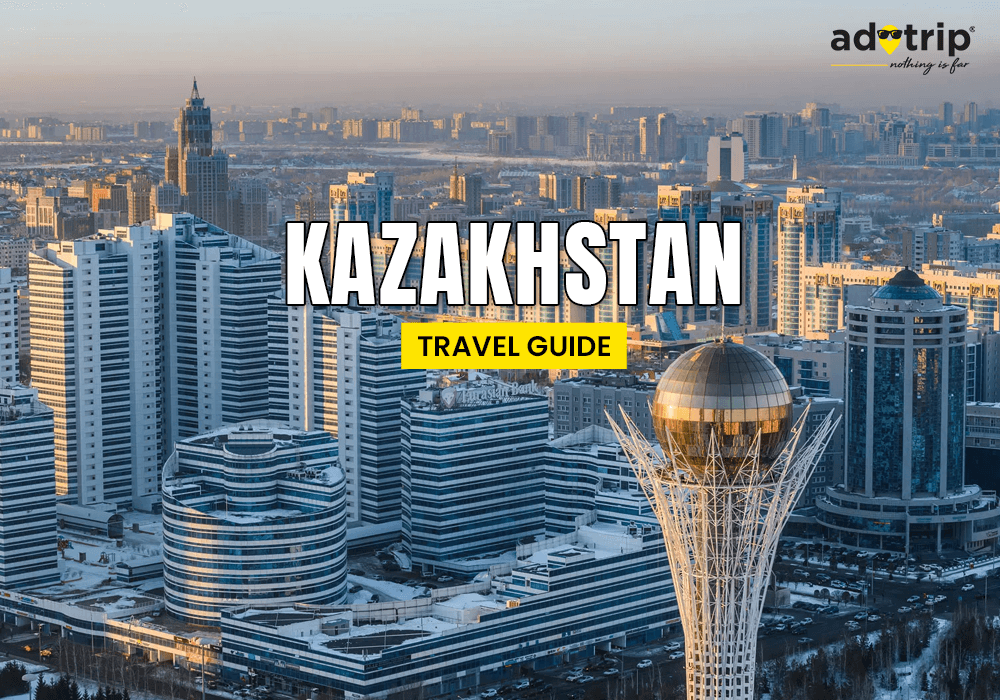
Kazakhstan Travel Guide 2025: Affordable Luxury, Visa Free E...
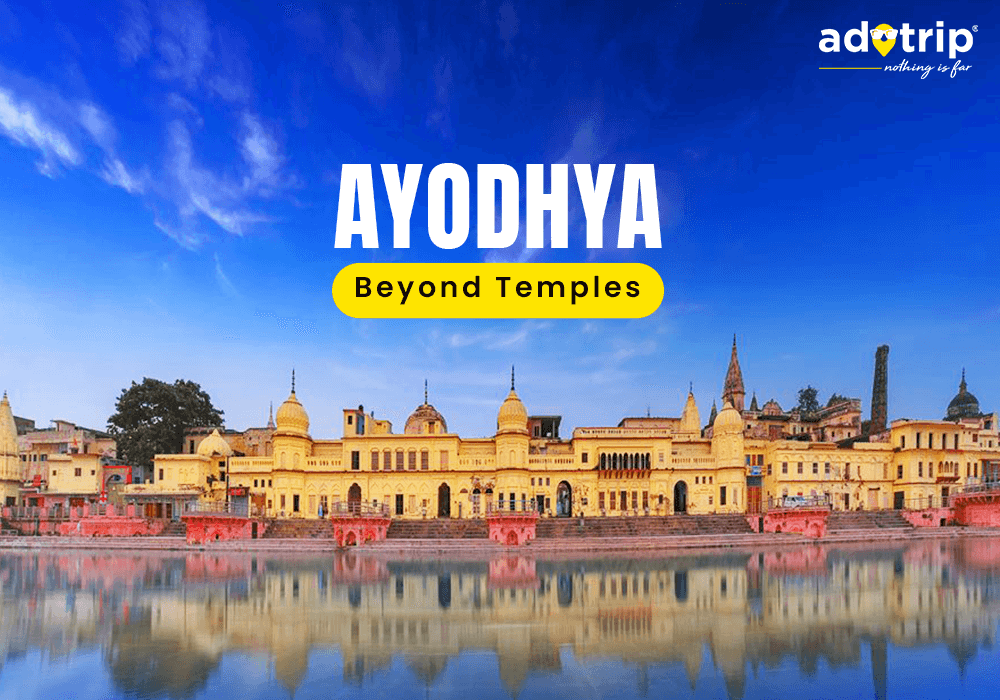
Think Ayodhya is Just Temples? Discover Its Hidden Artistic...

Why Azerbaijan is the Best Budget Friendly Alternative to Sw...
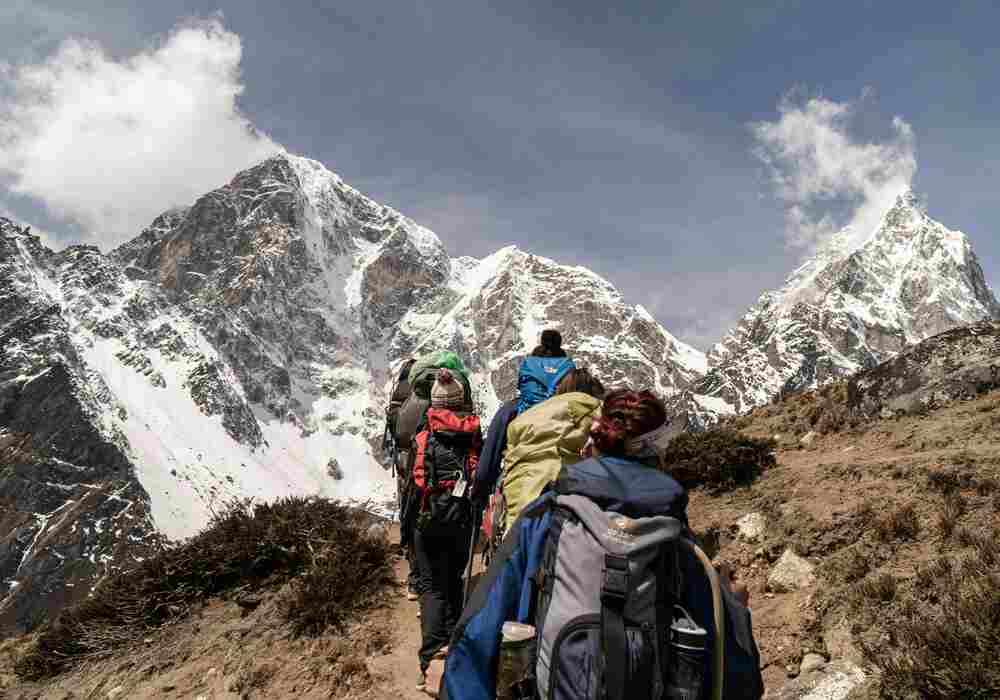


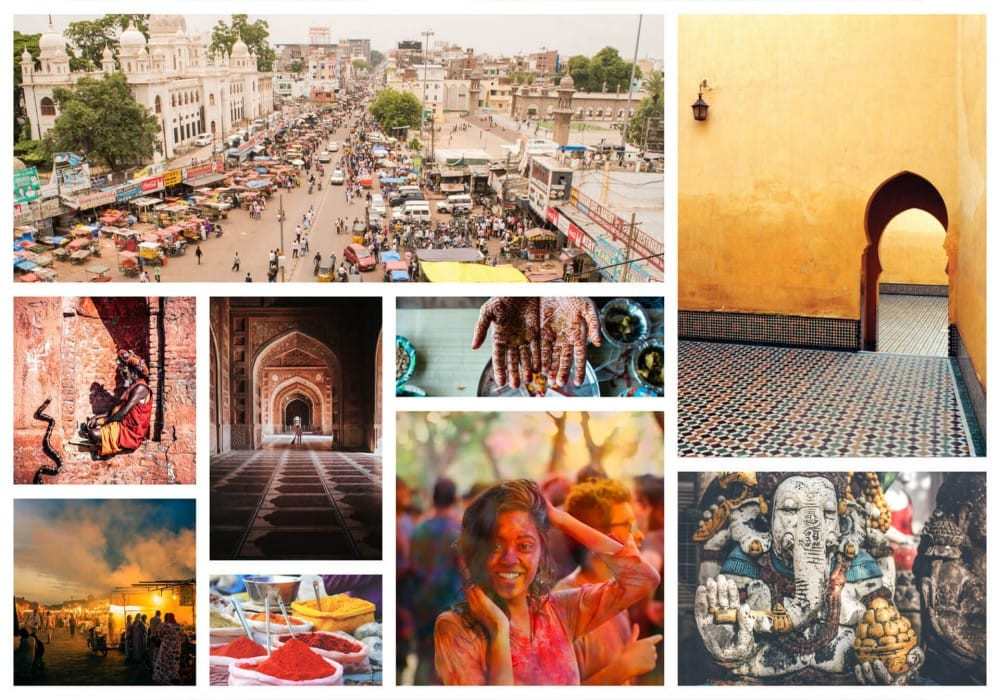
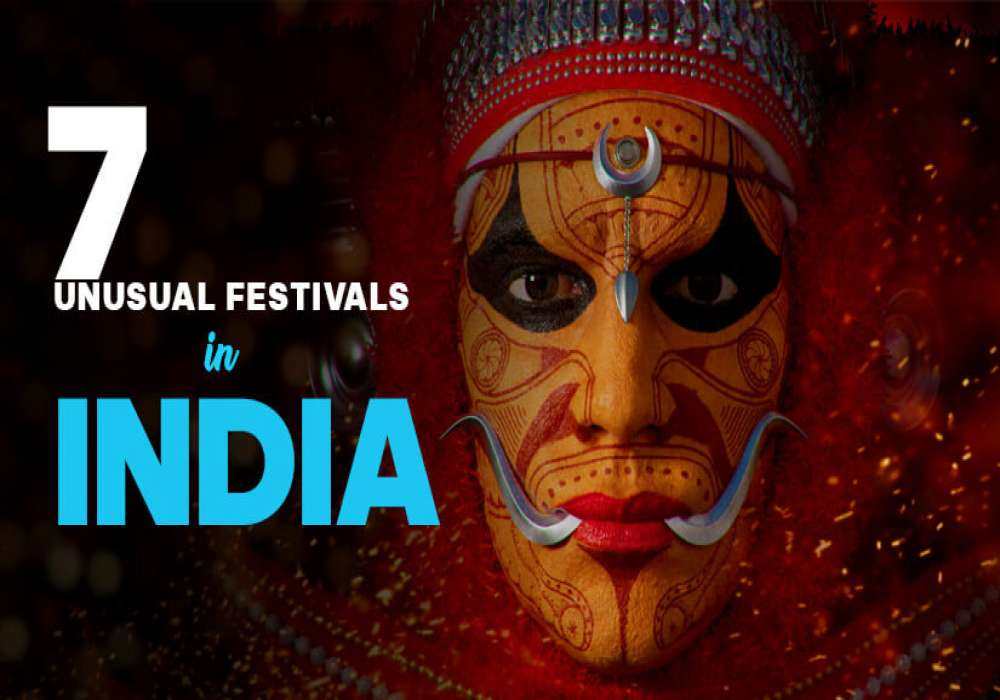


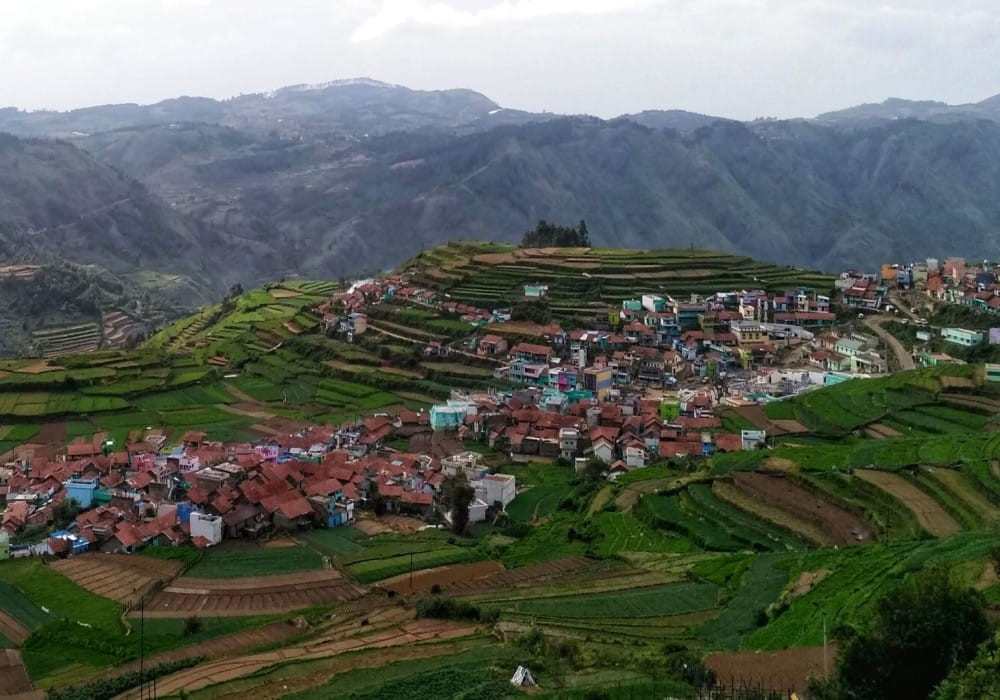



 (1).png)
 Dubai
Dubai Malaysia
Malaysia USA
USA





